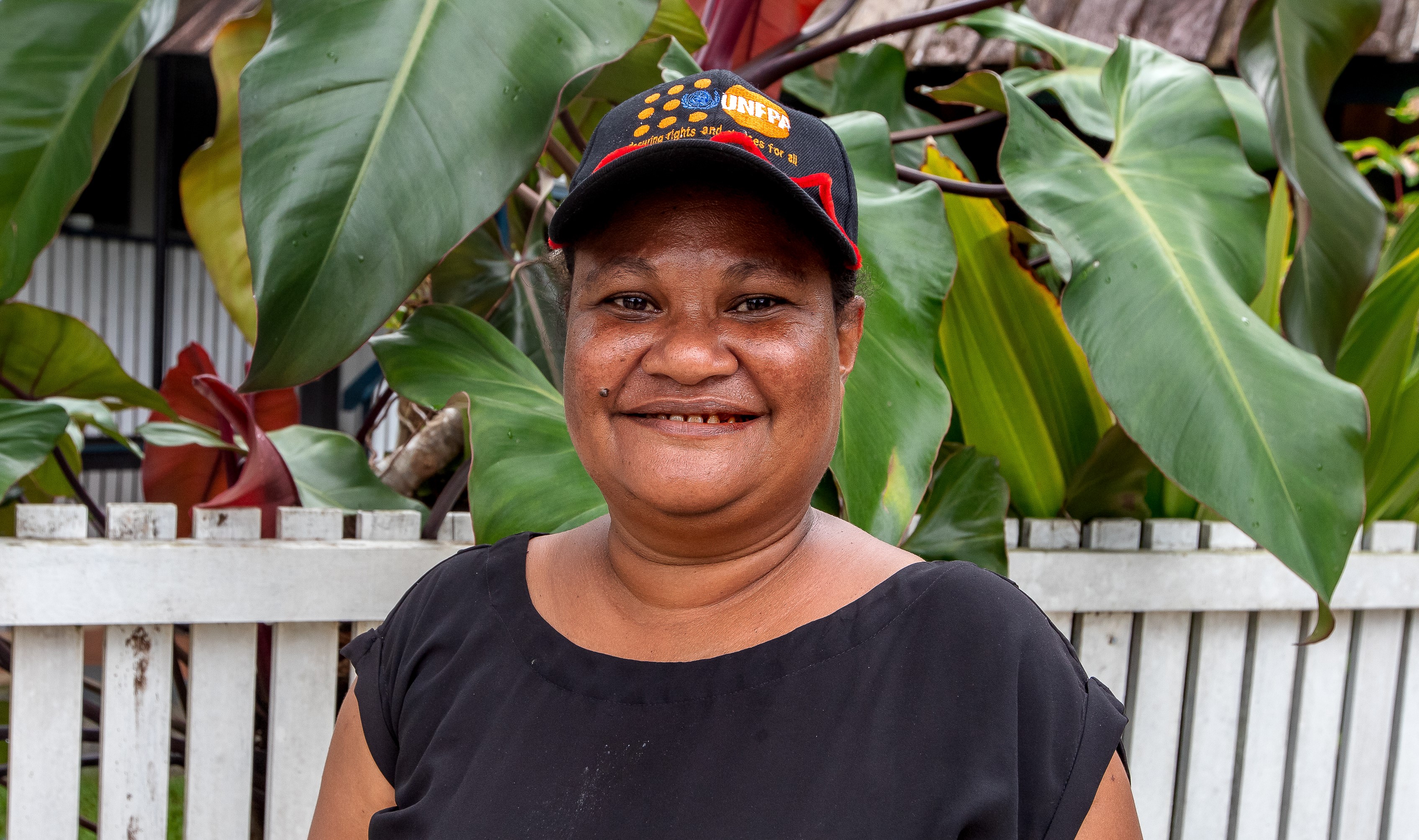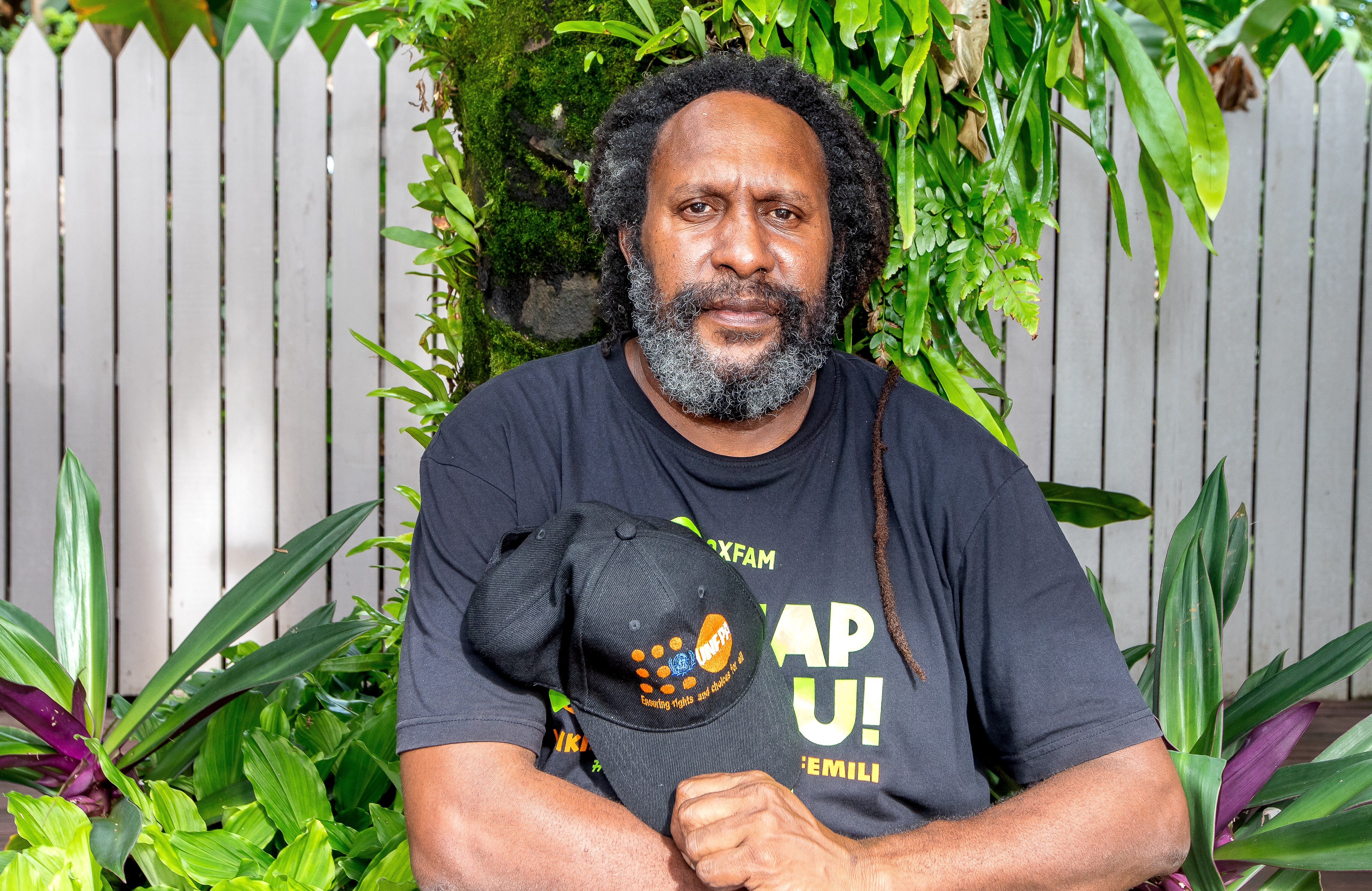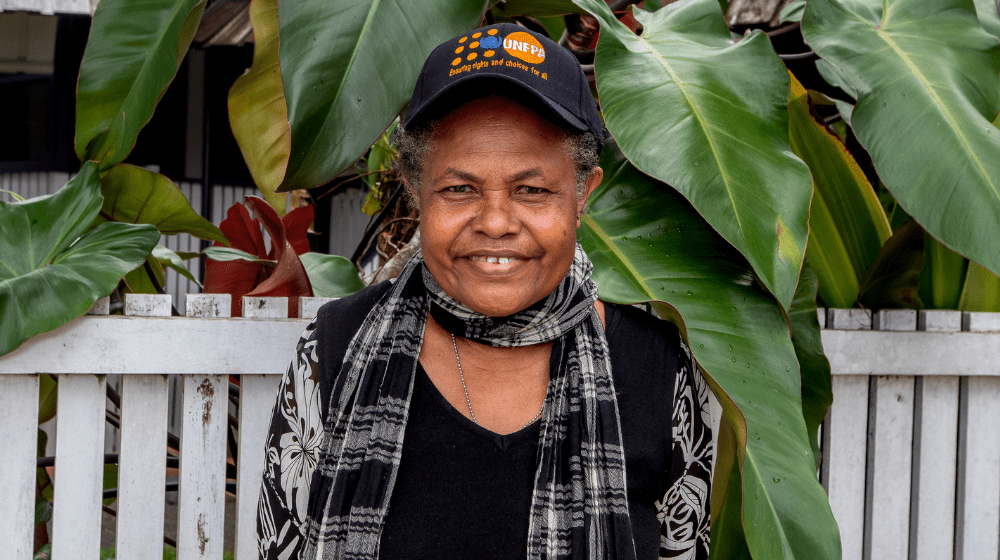“I remember a gender-based violence survivor who had everything taken away from her", recalls Gemma Losema, a Community Health Worker in Papua New Guinea.
She was in a very violent situation and came to the Family Support Centre with nothing. I worked with her for many months until she got out of the situation. Now she is back at work again. She is living a much better life.”
At the Family Support Centre in Milne Bay, Gemma and her colleagues provide essential services for women and girls who have experienced violence.
Family Support Centres are the National Department of Health’s model for administering services to survivors of gender-based violence in Papua New Guinea. They are located at provincial and district-level hospitals throughout the country. Women and girls receive clinical care to treat injuries from violence and other medical services such as emergency contraception, and screening, prevention and treatment of sexually transmitted infections. Family Support Centres also offer emotional support and referrals to other services such as legal assistance.
Gemma is a true lifesaver for many women and girls who are subjected to violence as a result of pervasive and toxic social norms rooted in gender inequality.
But for every survivor Gemma and other service providers support, there are far more who live in a shroud of silence, never receiving professional help.
This is concerning - especially since Papua New Guinea has among the highest prevalence rates of violence against women globally. Nearly 60 per cent of women have experienced physical, sexual or both forms of violence by an intimate partner in their lifetime, but very few seek help.
Despite the majority of women sustaining injuries as a result, only three per cent reached out to medical personnel, three per cent to social work organisations and 10 per cent to the police.
Many factors contribute to women and girls’ hesitancy to ask for help. Often, they fear stigmatisation by their communities or retaliation by their abusers.
The quality of services and facilities for survivors of gender-based violence vary, also disincentivising them to seek support: Additional training is critically needed, staff resources are stretched thin, some facilities are outdated and lack privacy, and in many places coordination between service providers is fragmented.
Case management has not been ‘survivor-centred’ historically – which means putting their rights and needs first; and follow-up with survivors has been weak. Women and girls often visit many different sites during the course of seeking services – from police stations to hospitals to counseling centres. In the absence of case managers, many survivors get frustrated, further traumatised, and simply give up.
Papua New Guinea’s topography also makes accessing services logistically challenging. For example, Milne Bay province encompasses over 600 islands; gender-based violence survivors must travel to the mainland to get help from the provincial capitol’s Family Support Centre.
Edna Tounokon, a Senior Social Worker at the Milne Bay Family Support Centre employed by the Milne Bay Provincial Health Authority, has seen these complexities firsthand.

“A lady came in with her 14-year old child who had a disability,” Edna explains.
The child had been raped by her father. The mother had been abused for a number of years too. Finally they came to get help. It took them three days of travel by sea; it was a very difficult journey. The daughter had a baby in the hospital. The mother refused to return to the husband, fearing for their safety. The mother wanted to take her daughter and grandchild to her family in Port Moresby. They stayed at the hospital in temporary accommodation for three months.
During this time I counseled them and tried to find money here and there for their basic needs. It was a real challenge getting money for their flight to Port Moresby, but finally the Milne Bay member of Parliament paid for their ticket so she could return to her family. They are doing well now. I found out later that the mother had been abducted many years ago and was taken to Milne Bay for marriage, so their return to Port Moresby was important not just for the daughter and the grandchild but for the mother too.”
The barriers to women and girls seeking help are no secret: The Government of Papua New Guinea knows the challenges - and is committed to changing them.
In 2013, the Papua New Guinea Government called for the establishment of Family Sexual Violence Action Committees in select provinces for coordinated, multi-sectoral gender-based violence response services. However, these committees have not been as effective given the limited staff capacity, office space and funding.
Duncan Mailau, the Milne Bay Provincial Authority’s coordinator of gender-based violence response and Milne Bay’s Family Sexual Violence Action Committee, oversees linkages between services for survivors and shares information about successful practices and challenges.

Because most providers only provide one service, it is my job to make sure they are working well with each other. I monitor the services and how well they are coordinated. The main challenge in my work is that survivors are afraid to come forward. The survivors feel their confidentiality will not be respected.”
Under a new programme called “Her Health and Dignity, Our Priority,” the Government of Papua New Guinea is working in partnership with Zonta International and UNFPA to address these challenges and strengthen services for survivors of gender-based violence in both Papua New Guinea and Timor-Leste, especially within the health sector. The initiative also improves linkages and coordination between different types of services.
“Her Health and Dignity, Our Priority” aims to give survivors easier access, additional options and even more impactful support in line with international standards. This includes training more service providers in gender-based violence core concepts, clinical care, case management and referral procedures, and renovating facilities, which will also enhance clients’ privacy.
“Though I do the work, I had never been to a training on case management,” Gemma reports after attending a session by UNFPA Papua New Guinea, with funding from Zonta International. “It was also good to meet other service providers. This will definitely help me do a better job at referring survivors to the support she needs and wants.”
Edna also benefited from the case management training. “We work on cases every day but previously had no idea about the follow through. We can help gender-based violence survivors when they come in, but didn’t know how to work from registration and assessment right through to case closure. The cases just sit there, forgotten. Now we know how to properly deal with cases, including closing them.”
This is more than just a job for many service providers like Gemma, Edna and Duncan who work with women and girls experiencing violence. Despite the vast challenges brought on by the COVID-19 pandemic, they continue to show up and learn how to better help survivors restore their dignity, health and wellbeing.
They too are essential frontline responders of a different pandemic: gender-based violence.
Zonta International and UNFPA have a long history of working to improve gender equality and women’s empowerment. UNFPA is a global leader in helping countries strengthen their ability to end gender-based violence through evidence-based prevention and response programmes and services.
To learn more about the “Her Health and Dignity, Our Priority” programme, please visit: unf.pa/gbvpt21


